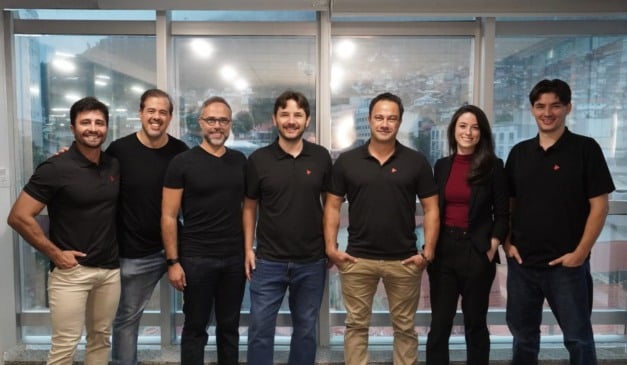
The volume of angel investments in Brazil may increase 10% in 2022, reaching $1.1 billion, according to a survey carried out by Anjos do Brasil, a not-for-profit organization focused on helping the development of angel investment in the country.
Although it’s not as much as the 17% growth registered between 2020 and 2021, the percentage is a positive sign amid the current pessimism and decrease in the size of startup investments. “It shows that investors still want to increase the size of investments. Of course, it is still below what we needed it to be, but considering the current scenario, this is good news”, said Cassio Spina, president and founder of Anjos do Brasil.
The company usually invests around $160,000 and $300,000 in each round and has 480 investors from 17 states.
Room for optimism
Anjos do Brasil carries out its survey annually to analyze investors’ behavior and expectations. In 2022, the research included Anjos and other investor networks. The company collected the answers in February – before the downturn in global economies and the venture capital market.
Spina says the mood change might have happened because of the psychological impact of the latest events, but it seems that optimism will remain in the second semester. “2020 started out great. But then it was a disaster with the pandemic. In March, everyone said that the year would be a disaster. In the second half of the year, things went back to normal”, the executive said.
“In 2022, I think there’s been an impact, but it will be ok. Ecosystems focused on innovation have a bright horizon because if it’s innovative, the economy doesn’t matter”, he noted.
According to Spina, layoffs and adjustments are mostly happening in companies that are bigger in size and valuation. And they need to hold their horses during the current scenario. For early-stage companies, the effects are much smaller, and valuations haven’t been affected as much.
“Founders, especially those who used to have more stratospheric valuations, are beginning to understand that [the previous] reality will no longer exist. You had MVPs at a $4 million valuation. That’s how people were investing last year. But this year, that won’t happen anymore. There will be more reasonableness”, he said.
The scenario in 2021
Looking back at 2021, Anjos do Brasil registered a 17% growth in the volume of angel investments in Brazil. Startups raised almost $200 million in angel investments backed by 7,834 individuals. The number of investors grew 13% compared to 2020.
Spinas says there is still a lot of room for growth. The volume of angel investment in Brazil represents only 0.7% of the amount invested in the United States (around $29 billion annually). “There was an evolution in the volume of investments in the last decade. However, we are still not close to our full potential. Considering the seven-time difference in the countries’ GDP, angel investment in Brazil should be at least $2 billion. For Brazil to reach its full potential, we need public policies that encourage startup investment, as recommended by the OECD [Organisation for Economic Co-operation and Development], which applies to several countries, including all BRICS, except for Brazil,” the executive said.
He adds that recent government measures have not helped in this process. The President vetoed a legal framework that allowed the investors to compensate the losses with gains, similar to what happens with investments in shares of public companies. According to Spina, this creates a problem of inequality in tax treatment. “Investment in startups is penalized while other investments in much larger companies and debenture issuers are exempt, which discourages startups,” Spina pointed out.
Brazilian angel investors
For the second time in its research series, Anjos do Brasil analyzed racial diversity among the investors. The survey shows that most of the investors (91%) are white, only 4% are East Asian and 3% are black, indigenous, or pardos, a category used by the Brazilian Institute of Geography and Statistics to refer to a skin tone darker than white and lighter than black).
This year, 16% of the network responded to the survey, which is the highest percentage since 2017 when the company first carried out the research (back then, it had a 10% participation rate). According to Spina, 20% of angel investors internationally are female. “We are not far from that, but we can aim to go further,” he says.
Maria Rita Spina Bueno, executive director of Anjos do Brasil, said there more actions are needed to promote diversity in the ecosystem. “Individual and collective action must be aimed at encouraging diversity,” she said.
(translation by Gabriela Del Carmen)








